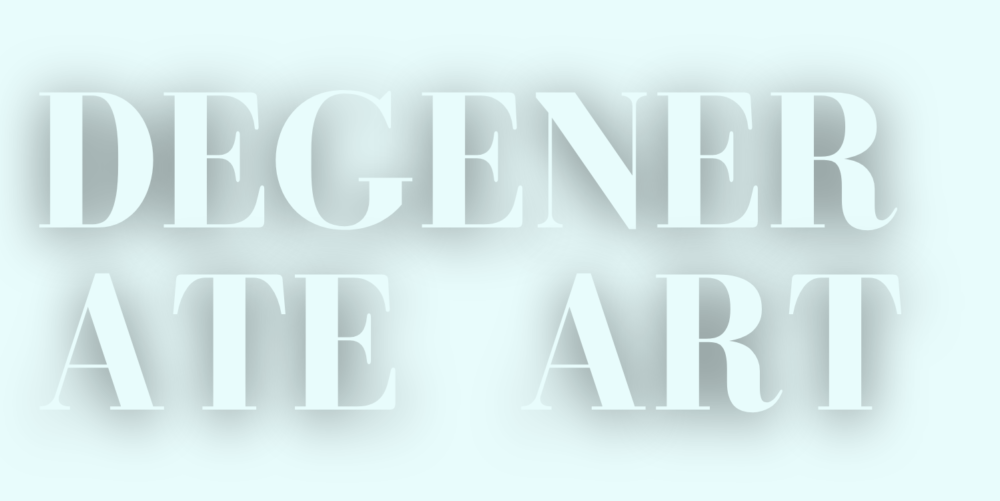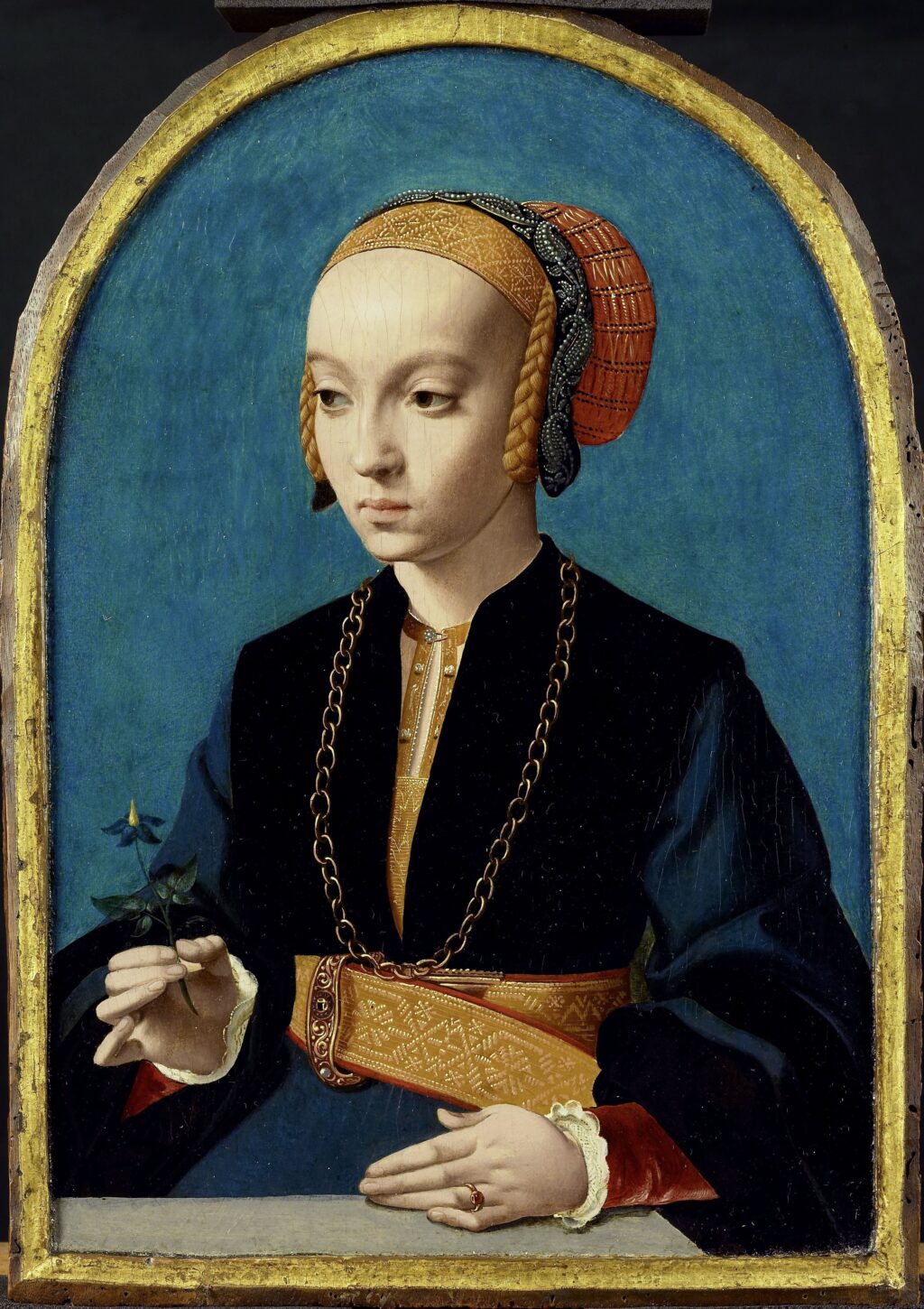This is the third and concluding part of our excerpt from The Masterpiece.
Part ONE OF THE EXCERPT CAN BE FOUND HERE: HTTPS://THISDEGENERATE.ART/2021/08/THE-MASTERPIECE-1/
Part tWO OF THE EXCERPT CAN BE FOUND HERE: HTTPS://THISDEGENERATE.ART/2021/08/THE-MASTERPIECE-2/
+++
It was he who was entreating now, pitifully waving his crayon amid the emotion of his artistic craving. Besides, he had not stirred, but remained crouching on his low chair, at a distance from the bed. At last she risked the ordeal, and uncovered her tranquillised face. What else could she do? She was at his mercy, and he looked so wretchedly unhappy.
Nevertheless, she still hesitated, she felt some last scruples. But eventually, without saying a word, she slowly brought her bare arm from beneath the coverings, and again slipped it under her head, taking care, however, to keep the counterpane tightly round her throat.
‘Ah! how kind you are! I’ll make haste, you will be free in a minute.’
He bent over his drawing, and only looked at her now and then with the glance of a painter who simply regards the woman before him as a model. At first she became pink again; the consciousness that she was showing her bare arm—which she would have shown in a ball-room without thinking at all about it—filled her with confusion. Nevertheless, the young man seemed so reasonable that she became reassured. The blush left her cheeks, and her lips parted in a vague confiding smile. And from between her half-opened eyelids she began to study him. How he had frightened her the previous night with his thick brown beard, his large head, and his impulsive gestures. And yet he was not ugly; she even detected great tenderness in the depths of his brown eyes, while his nose altogether surprised her. It was a finely-cut woman’s nose, almost lost amidst the bristling hair on his lips. He shook slightly with a nervous anxiety which made his crayon seem a living thing in his slender hand, and which touched her though she knew not why. She felt sure he was not bad-natured, his rough, surly ways arose from bashfulness. She did not decipher all this very clearly, but she divined it, and began to put herself at her ease, as if she were with a friend.
Nevertheless, the studio continued to frighten her a little. She cast sidelong glances around it, astonished at so much disorder and carelessness. Before the stove the cinders of the previous winter still lay in a heap. Besides the bed, the small washstand, and the couch, there was no other furniture than an old dilapidated oaken wardrobe and a large deal table, littered with brushes, colours, dirty plates, and a spirit lamp, atop of which was a saucepan, with shreds of vermicelli sticking to its sides. Some rush-bottomed chairs, their seats the worse for wear, were scattered about beside spavined easels. Near the couch the candlestick used on the previous night stood on the floor, which looked as if it had not been swept for fully a month. There was only the cuckoo clock, a huge one, with a dial illuminated with crimson flowers, that looked clean and bright, ticking sonorously all the while. But what especially frightened her were some sketches in oils that hung frameless from the walls, a serried array of sketches reaching to the floor, where they mingled with heaps of canvases thrown about anyhow. She had never seen such terrible painting, so coarse, so glaring, showing a violence of colour, that jarred upon her nerves like a carter’s oath heard on the doorstep of an inn. She cast her eyes down for a moment, and then became attracted by a picture, the back of which was turned to her. It was the large canvas at which the painter was working, and which he pushed against the wall every night, the better to judge it on the morrow in the surprise of the first glance. What could it be, that one, she wondered, since he dared not even show it? And, meantime, through the vast room, a sheet of burning sunlight, falling straight from the window panes, unchecked by any blind, spread with the flow of molten gold over all the broken-down furniture, whose devil-may-care shabbiness it threw into bold relief.
Claude began to feel the silence oppressive; he wanted to say something, no matter what, first, in order to be polite, and more especially to divert her attention from her pose. But cudgel his brain as he would, he could only think of asking: ‘Pray, what is your name?’
She opened her eyes, which she had closed, as if she were feeling sleepy.
‘Christine,’ she said.
At which he seemed surprised. Neither had he told her his name. Since the night before they had been together, side by side, without knowing one another.
‘My name is Claude.’
And, having looked at her just at that moment, he saw her burst into a pretty laugh. It was the sudden, merry peal of a big girl, still scarcely more than a hoyden. She considered this tardy exchange of names rather droll. Then something else amused her.
‘How funny—Claude, Christine—they begin with the same letter.’
They both became silent once more. He was blinking at his work, growing absorbed in it, and at a loss how to continue the conversation. He fancied that she was beginning to feel tired and uncomfortable, and in his fear lest she should stir, he remarked at random, merely to occupy her thoughts, ‘It feels rather warm.’
This time she checked her laughter, her natural gaiety that revived and burst forth in spite of herself ever since she had felt easier in mind. Truth to tell, the heat was indeed so oppressive that it seemed to her as if she were in a bath, with skin moist and pale with the milky pallor of a camellia.
‘Yes, it feels rather warm,’ she said, seriously, though mirth was dancing in her eyes.
Thereupon Claude continued, with a good-natured air:
‘It’s the sun falling straight in; but, after all, a flood of sunshine on one’s skin does one good. We could have done with some of it last night at the door, couldn’t we?’
At this both burst out laughing, and he, delighted at having hit upon a subject of conversation, questioned her about her adventure, without, however, feeling inquisitive, for he cared little about discovering the real truth, and was only intent upon prolonging the sitting.

